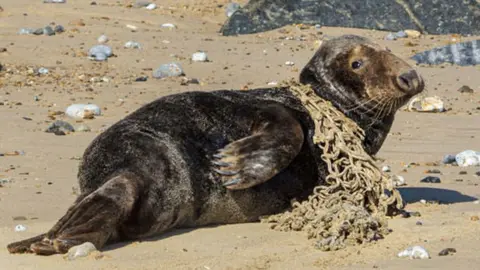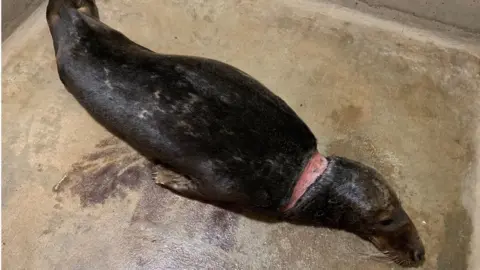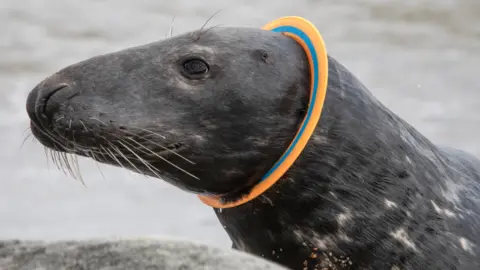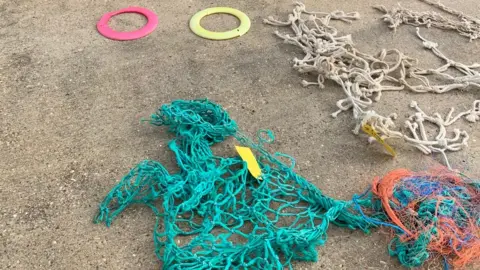Norfolk RSPCA centre saves 50th seal with injuries from rubbish
 Glenn Mingham
Glenn MinghamA grey seal rescued on the North Sea coast has become the 50th to be treated by a wildlife centre for injuries caused by discarded man-made rubbish.
The animal, a male named Scylla, was found with an infected wound caused by a fishing net embedded around his neck.
The RSPCA centre in Norfolk said 2019 could be a record year for seal rescues "for all the wrong reasons".
"It's hard to describe how much pain and distress this can cause a seal," said manager Alison Charles.
"They are weighed down by this huge mass of netting, which must make it hard for them to swim, and then the net starts to cut and embed into their neck too.
"The injuries are horrendous, sometimes inches deep, and all the while the seal is becoming weaker and weaker and cannot feed so their suffering continues and they slowly starve to death.
"It is just horrific."
 RSPCA
RSPCAScylla weighed just a quarter of the 300kg (660lbs) a seal his age should when he was taken to the RSPCA's East Winch Wildlife Centre near King's Lynn.
He was rescued on Horsey beach in Norfolk on 3 October by the charities Friends of Horsey Seals and Marine & Wildlife Rescue, with help from the public.
Scylla is likely to require months of recuperation at the centre, the RSPCA said.
 Rosie Barrett
Rosie BarrettHe is the 50th "necklace" seal - so-called because the rubbish, often plastic, becomes wrapped around their necks - to have been admitted to the RSPCA East Winch Wildlife Centre since 2008.
In 2019, eight seals have already been admitted.
They are usually a result of fishing nets and lines, but three have also had injuries from frisbee-type rings around their necks.
 RSPCA
RSPCA